


President and acting president were impeached; Finance minister will assume acting presidency.
Yoon declared emergency martial law on Dec 3, only to repeal it the very next day after the parliament voted against its implementation.
SEOUL -- South Korea's joint investigation unit said Monday that it sought a warrant to arrest the impeached President Yoon Suk-yeol over his martial law imposition.
The investigation unit, consisting of Corruption Investigation Office for High-ranking Officials, National Office of Investigation and the defense ministry's investigation headquarters, said in a short notice that it requested the arrest warrant for Yoon at midnight to the Seoul Western District Court.
It marked the first time in the country's modern history that an arrest warrant has been filed against an incumbent president.
The unit asked Yoon to appear for questioning three times on Dec 18, Dec 25 and Dec. 29, but Yoon's side refused to receive summons while having yet to submit documents for the appointment of his defense counsel.
Yoon was named by investigative agencies as a suspected ringleader on insurrection charge.
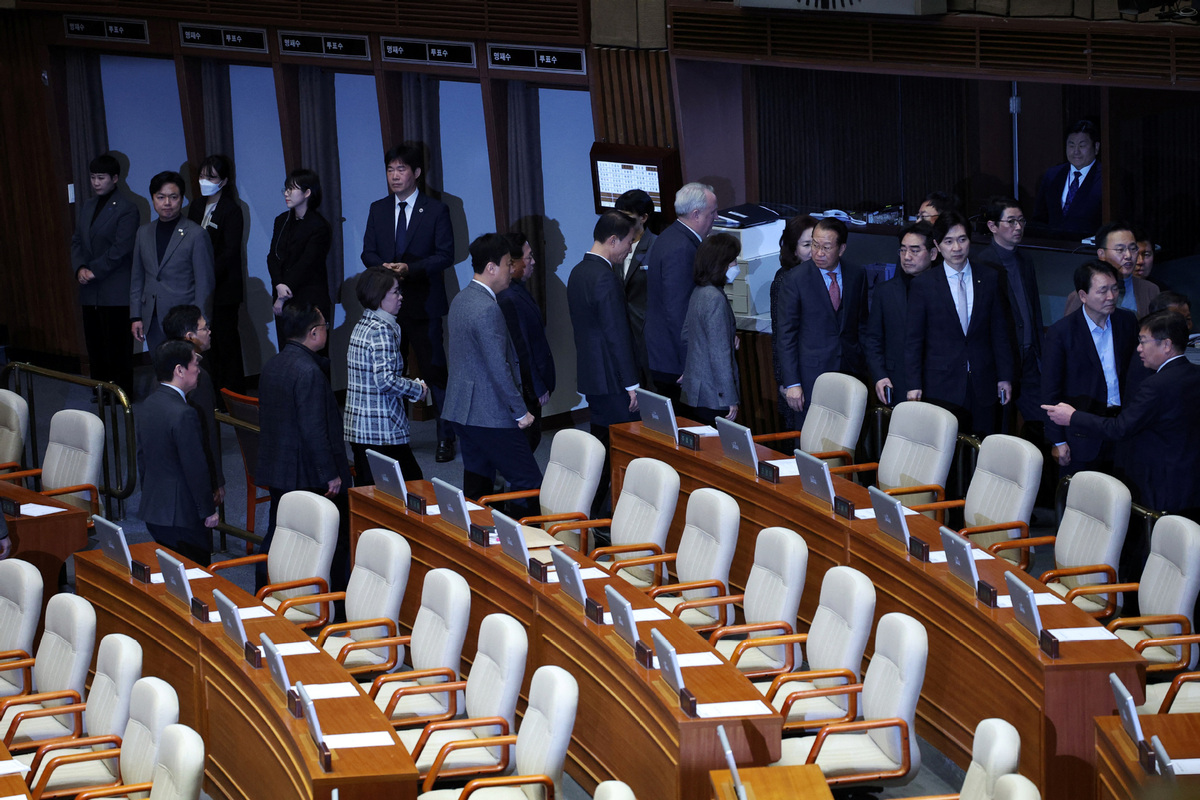
SEOUL -- South Korea's Minister of Economy and Finance Choi Sang-mok is set to begin his scheduled duties as acting president on Friday, Yonhap news agency reported, citing his office.
Choi, also the deputy prime minister for economic affairs, is poised to assume the role following the suspension of acting president Han Duck-soo's duties, after the opposition-controlled National Assembly passed a motion to impeach Han earlier Friday, the report said.
The Finance Ministry said Choi plans to have a meeting with Han, followed by a phone call with the chairman of the Joint Chiefs of Staff, and order instructions to the government ministers, the report said.
The acting president is also scheduled to deliver a written address to the public and convene the National Security Council, the report added, citing the ministry.
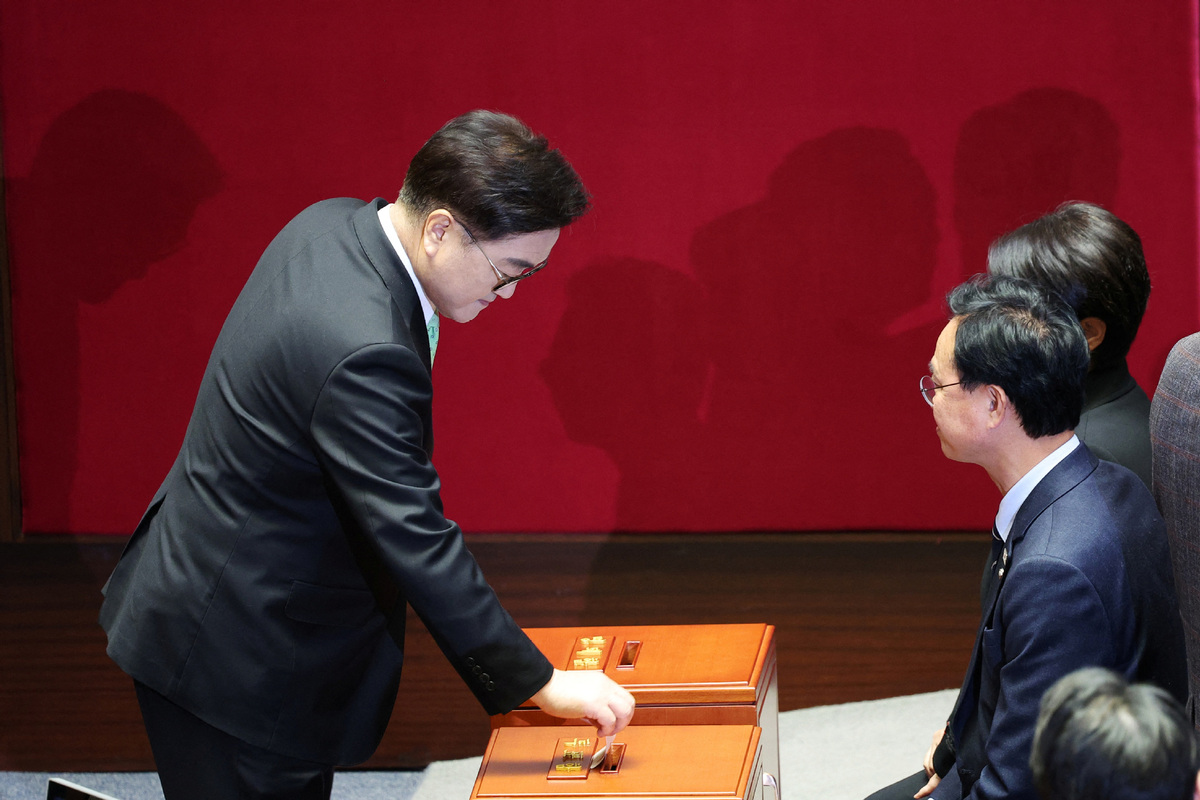
SEOUL -- South Korea's opposition-controlled parliament voted Friday to impeach Prime Minister Han Duck-soo who had been serving as acting president following President Yoon Suk-yeol's impeachment.
National Assembly Speaker Woo Won-shik said in a televised plenary session that the motion to impeach Han was passed with 192 votes in favor in the 300-member unicameral parliament.
It was the first time in the country's modern history that an impeachment motion against an acting president is put to a vote and passed in the National Assembly.
Before leaving the parliamentary chamber to boycott the vote, 108 lawmakers of the ruling People Power Party chanted in union in front of the parliamentary speaker, "Null and void," and "Resign, speaker."
The ruling and opposition parties had been divided over the requirement for the acting president's impeachment.
The People Power Party claimed that 200 lawmakers should vote for the impeachment as it applies to the president's impeachment, but the opposition parties said a majority of 151 votes are needed as Han is a member of the cabinet.
With the parliamentary approval, Han's duty will be suspended until the constitutional court completes deliberation on it.
Minister of Economy and Finance Choi Sang-mok, who doubles as deputy prime minister for economic affairs, will assume an acting presidency.
Han's impeachment came after he officially refused to approve the appointment of three constitutional court justices who will fill vacancies on the nine-member bench for Yoon's impeachment trial.
The impeachment motion against Yoon was passed in the National Assembly on Dec. 14 and was delivered to the constitutional court to deliberate it for up to 180 days, during which Yoon's presidential power is suspended.
Yoon, who was named by investigative agencies as a suspect on insurrection charge, declared an emergency martial law on the night of Dec. 3, but it was revoked by the National Assembly hours later.
To oust Yoon from office, at least six out of nine constitutional court justices are required to uphold the impeachment motion.
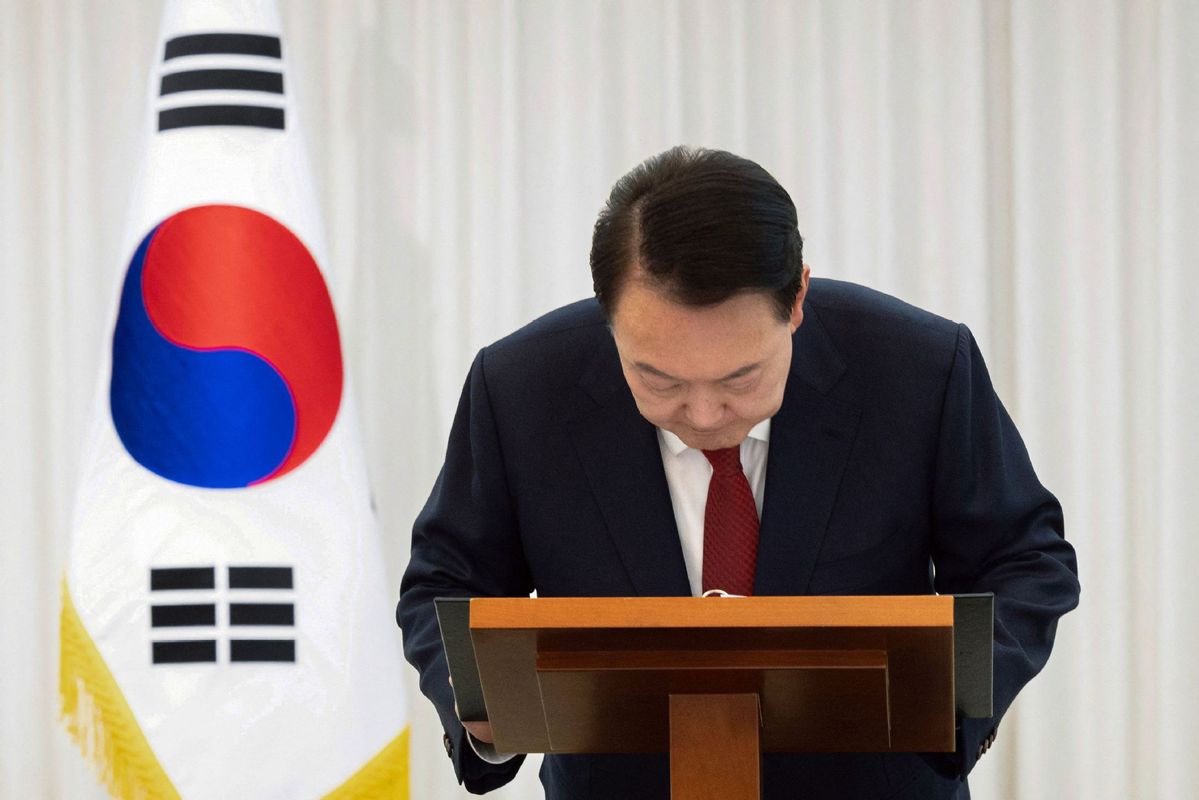
SEOUL -- South Korea's constitutional court started the first preparatory hearing Friday for a trial on President Yoon Suk-yeol's impeachment that was passed by the parliament earlier this month over Yoon's short-lived martial law imposition.
The pre-trial hearing began at about 2:15 pm local time to let legal representatives of both Yoon and the National Assembly submit the lists of witnesses and evidence and adjust dates for future proceedings.
The National Assembly was represented by the chief of the legislation and judiciary committee and other lawyers, while Yoon's side appointed a team of defense counsels hours before the preparatory hearing.
Yoon insisted that his martial law declaration was an act of governance, but the National Assembly called it an act of insurrection.
The impeachment motion against Yoon was passed by the National Assembly on Dec 14 and delivered to the constitutional court to deliberate it for up to 180 days, during which Yoon's presidential power will be suspended.
Yoon declared an emergency martial law on the night of Dec 3 but it was revoked by the National Assembly hours later.
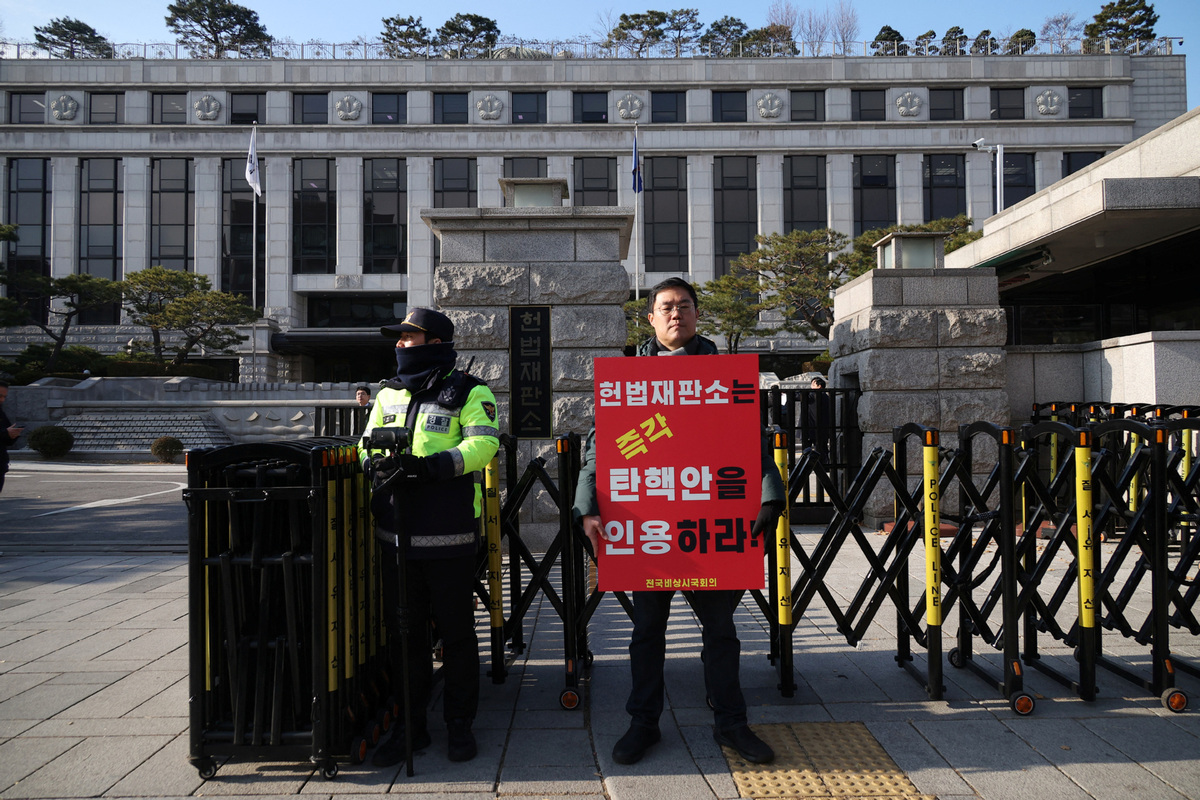
SEOUL -- South Korea's parliament on Thursday voted for the appointment of three constitutional court justices to fill vacancies on the nine-member bench for President Yoon Suk-yeol's impeachment trial over his martial law imposition.
Two justices were nominated by the main liberal opposition Democratic Party, and one was nominated by the ruling conservative People Power Party, most of whose lawmakers boycotted the vote.
The impeachment motion against Yoon was passed in the National Assembly on Dec 14 and was delivered to the constitutional court to deliberate it for up to 180 days, during which Yoon's presidential power is suspended.
Yoon, who was named by investigative agencies as a suspect on insurrection charge, declared an emergency martial law on the night of Dec 3, but it was revoked by the National Assembly hours later.
To oust Yoon from office, at least six out of nine constitutional court justices are required to uphold the impeachment motion.
Of nine justices, three are nominated by the National Assembly, three by the president and three by chief justice of the Supreme Court.
The appointment of the three justices, which was passed in the opposition-controlled National Assembly, needs to be ceremonially approved by the president.
Prime Minister Han Duck-soo, who became an acting president following Yoon's impeachment, officially refused to approve the appointment, saying in an address earlier in the day that he will delay the approval until the ruling and opposition parties reach an agreement.
The Democratic Party said it will table an impeachment motion against Han and report it to the National Assembly later in the day, planning to vote on the motion Friday.
SEOUL -- South Korea's main liberal opposition Democratic Party said on Thursday that it will vote on a motion to impeach Prime Minister Han Duck-soo on Friday.
Park Chan-dae, the party's floor leader, said in a statement that his party had submitted the impeachment motion against Han and reported it to the National Assembly's plenary session.
Han became an acting president following President Yoon Suk-yeol's impeachment over his martial law declaration on the night of Dec. 3 which was revoked by the National Assembly hours later.
Yoon was impeached by the National Assembly on Dec. 14. Since then, the constitutional court would deliberate it for up to 180 days, during which Yoon's presidential power is suspended.
Han said in a televised address earlier in the day that he will delay the appointment of constitutional court justices until the ruling and opposition parties reach an agreement.
The Democratic Party floor leader called Han's address as an official refusal to approve the appointment contributing to insurrection, over which investigative agencies looked into the impeached president.
Park Sung-joon, the party's deputy floor leader, told reporters that the Democratic Party will vote on the motion to impeach the prime minister during a plenary session on Friday.
The voting process was underway in the National Assembly to appoint three constitutional court justice nominees, who are required to be approved by an acting president.
SEOUL -- South Korea's impeached President Yoon Suk-yeol on Wednesday defied the second summons by a joint investigation unit for questioning over the imposition of an emergency martial law, Yonhap news agency reported.
The unit, composed of the police, the defense ministry's investigation headquarters and the Corruption Investigation Office for High-ranking Officials (CIO), sent its second summons to Yoon last Friday, requesting him to appear for questioning by 10:00 a.m. local time on Wednesday as part of its investigation into his short-lived imposition of the martial law on Dec. 3.
The embattled president did not comply with the CIO's first summons last week.
The CIO was currently planning to wait for Yoon's possible appearance later in the day, Yonhap said.
The corruption investigative body said it will make a decision as early as Thursday on whether to send summons for the third time if Yoon refuses to show up for questioning on Wednesday, Yonhap added.
Yoon was named by investigative agencies as a suspect on a rebellion charge following the martial law imposition that was revoked by the National Assembly hours later.
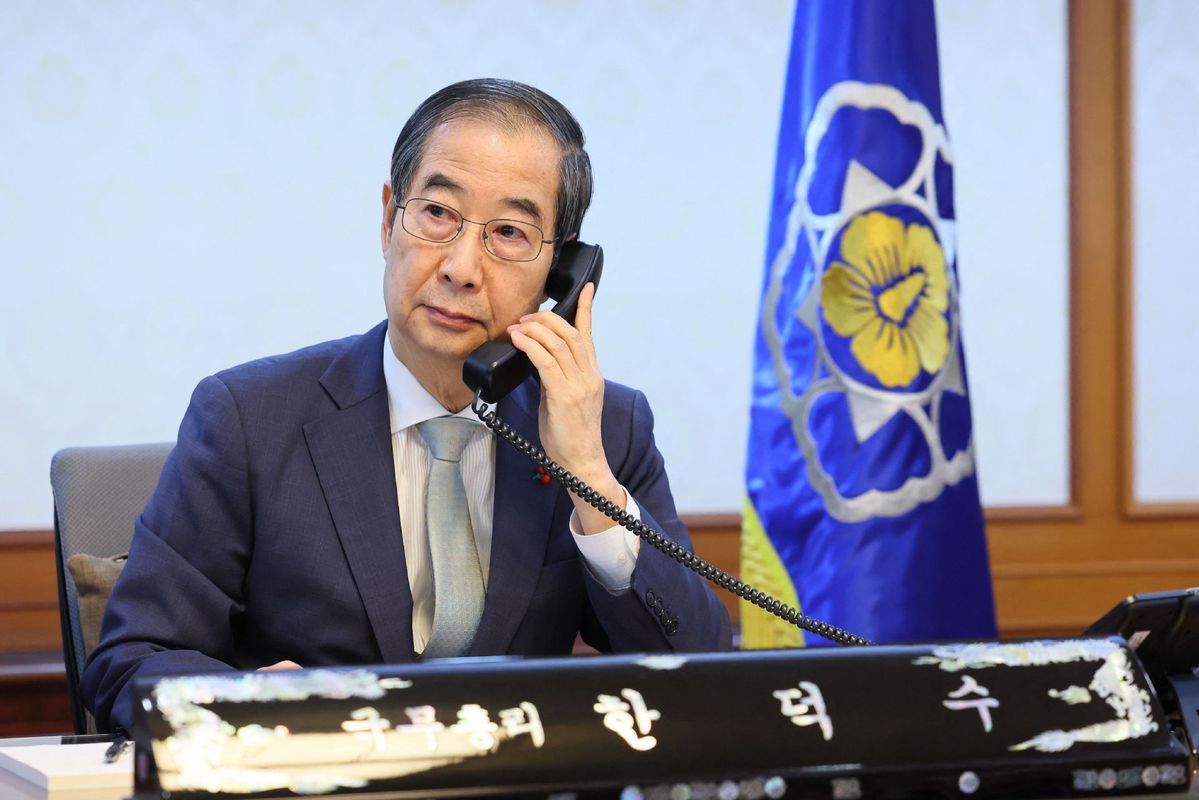
SEOUL - South Korea's main liberal opposition Democratic Party will submit a motion on Tuesday to impeach Prime Minister Han Duck-soo, who became the acting president following the impeachment of President Yoon Suk-yeol, according to multiple media outlets.
The party's floor spokesman told reporters right after the general meeting of its lawmakers that the party unanimously decided to table the motion later in the day and report it to the National Assembly's plenary session on Thursday.
Park Chan-dae, floor leader of the Democratic Party, said earlier in the day that his party would immediately launch impeachment proceedings against Han who made it clear that he will not promulgate bills to appoint independent counsels and investigate insurrection charge for the impeached president and scandals involving his wife.
The two bills were passed through the National Assembly on Dec 12, and the Democratic Party had warned that if Han fails to promulgate the bills by Dec 24, it would impeach him.
Yoon, who was named by investigative units as a suspect on treason charge, declared an emergency martial law on the night of Dec 3, but it was revoked by the National Assembly hours later.
The impeachment motion against Yoon was passed in the National Assembly on Dec 14 and was delivered to the constitutional court to deliberate it for up to 180 days, during which Yoon's presidential power was suspended.
Yoon has struggled with scandals involving his wife Kim Keon-hee during a presidential campaign and since he won the single five-year presidency in May 2022.
Kim was suspected of having been involved in stock price manipulation to gain illicit profits while having interfered in candidate nominations for the 2022 by-elections and the 2024 parliamentary elections and even in public opinion manipulation during the 2022 presidential election.
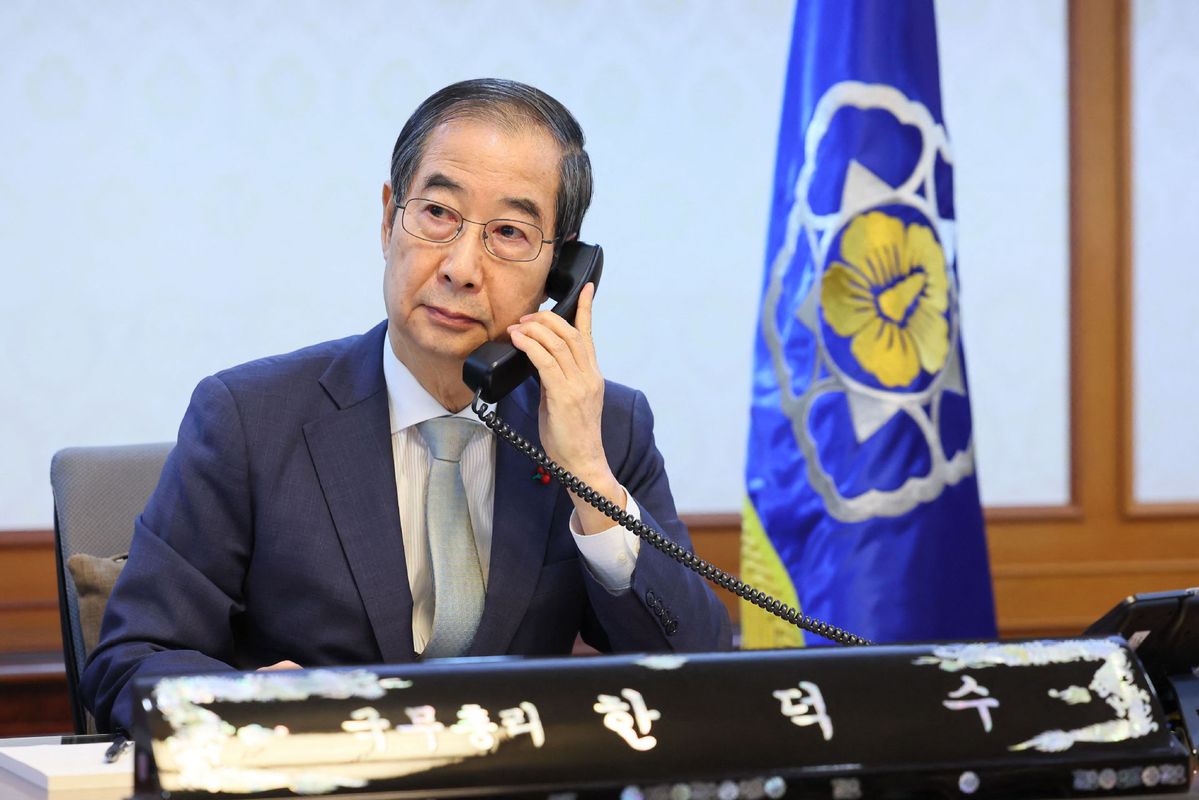
SEOUL -- South Korea's main opposition Democratic Party will immediately launch impeachment proceedings against Prime Minister Han Duck-soo who became the acting president following President Yoon Suk-yeol's impeachment over his botched martial law imposition, the party's floor leader said Tuesday.
Park Chan-dae, floor leader of the opposition party, said in a televised party meeting that the party will promptly start impeachment proceedings against Han who made it clear that he would not promulgate bills to appoint special counsels and investigate insurrection charges for the impeached president and scandals involving his wife.
The two bills were passed by the National Assembly on Dec. 12, and the Democratic Party had warned that if Han fails to promulgate the bills by Dec. 24, it would impeach the acting president.
Yoon, who was named by investigative units as a suspect on a treason charge, declared an emergency martial law on the night of Dec. 3, but it was revoked by the National Assembly hours later.
The impeachment motion against Yoon was passed by the National Assembly on Dec. 14 and delivered to the constitutional court to deliberate it for up to 180 days, during which Yoon's presidential power will be suspended.
Yoon has struggled with scandals involving his wife Kim Keon-hee during a presidential campaign and since he won the single five-year presidency in May 2022.
Kim was suspected of having been involved in stock price manipulation to gain illicit profits while having interfered in candidate nominations for the 2022 by-elections and the 2024 parliamentary elections and even in public opinion manipulation during the 2022 presidential election.

SEOUL -- South Korea's constitutional court said Monday that it will hold the first pretrial hearing over President Yoon Suk-yeol's impeachment on Friday as scheduled.
A court official told a televised press conference that the first preliminary hearing would be held on Dec 27 as planned as the court deemed the impeachment notice delivered to Yoon, who repeatedly defied the delivery.
The official said the delivery was already effective on Dec 20 when all relevant documents arrived, calling for Yoon to send his written answers to the court by Friday.
The presidential security service had refused to receive the documents related to Yoon's impeachment trial, such as request to appear in court and schedule for pretrial hearings.
The impeachment motion against Yoon was passed in the National Assembly on Dec 14 and was delivered to the constitutional court to deliberate it for up to 180 days, during which Yoon's presidential power will be suspended.
Yoon was named by investigative agencies as a suspect on a rebellion charge following his martial law imposition on the night of Dec 3, which was revoked by the National Assembly hours later.
SEOUL -- South Korea's joint investigation unit sent its second summons Friday to impeached President Yoon Suk-yeol, according to Yonhap news agency.
The unit, composed of the police, the defense ministry's investigation headquarters and the Corruption Investigation Office for High-ranking Officials (CIO), called on Yoon to appear for questioning on Dec. 25 over insurrection charge.
The summons were sent by express and electronic mails to the presidential residence and the presidential office.
The CIO attempted to deliver its first summons to the embattled president last week, but it failed as the presidential security service refused to receive it.
The prosecution separately sent its second summons to ask Yoon to appear for questioning on Saturday, but it was actually invalid after the prosecution transferred the case to the CIO earlier this week.
The CIO reportedly planned to consider seeking an arrest warrant against Yoon if Yoon continues to avoid receiving the summons or fails to comply with the summons for no justifiable reasons.
Yoon was named by investigative agencies as a suspect on rebellion charge following his martial law imposition on the night of Dec. 3 that was revoked by the National Assembly hours later.
The impeachment motion against Yoon was passed by the National Assembly on Dec. 14 and delivered to the constitutional court to deliberate it for up to 180 days, during which Yoon's presidential power is suspended.
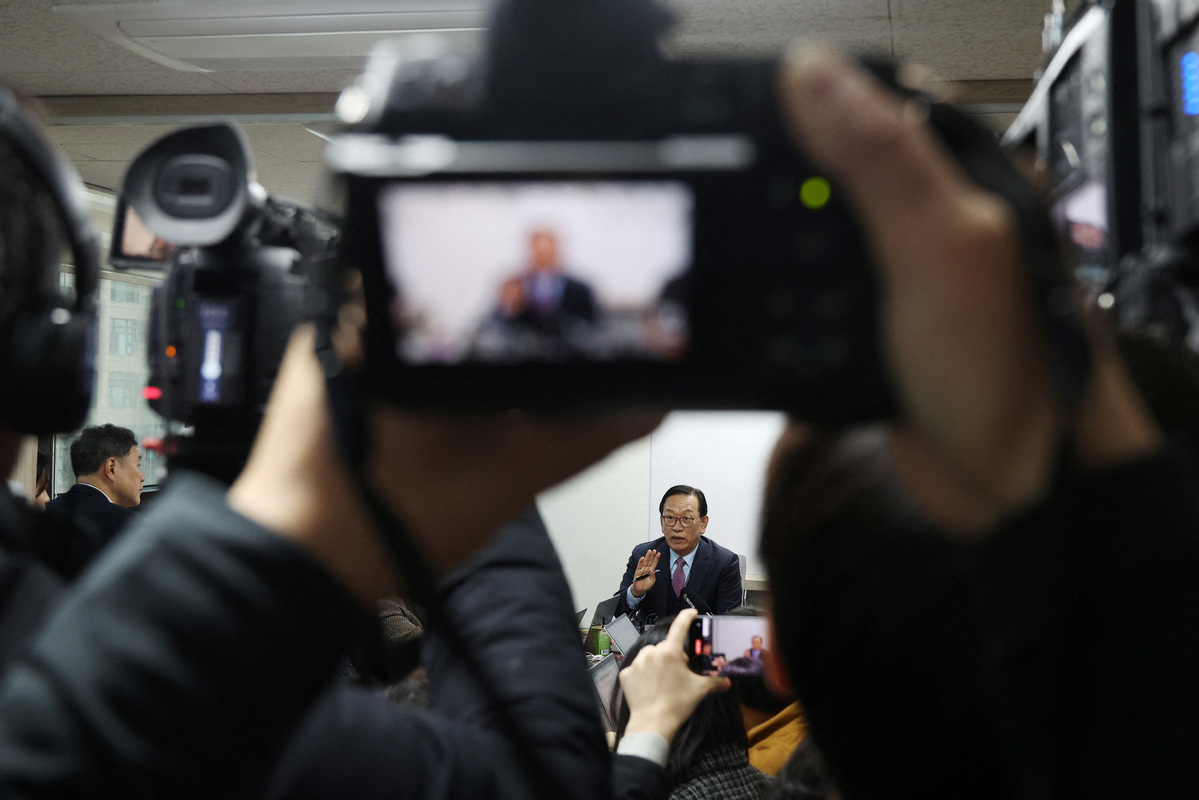
SEOUL -- South Korea's constitutional court resent an impeachment notice to President Yoon Suk-yeol's residence Thursday after the presidential security service's repeated rejection of receipt, according to multiple media outlets.
The court's spokesperson told reporters that documents relevant to Yoon's impeachment trial, including request to appear in court and schedule for preliminary hearings, were delivered to the presidential office for the second time Wednesday and for the third time earlier in the day.
The presidential security service repeatedly refused to receive the documents, and the constitutional court delivered them to the presidential residence.
Earlier in the day, officials with the constitutional court visited the presidential residence, attempting to pass on the impeachment documents by hand, but the security service refused to receive them again.
The spokesperson noted that the court will announce its position next Monday on whether the documents are seen to be delivered to Yoon.
If Yoon's side continues to reject the receipt, the court can put up the documents in the official gazette and consider it to be delivered.
The second motion to impeach Yoon was passed by the National Assembly on Dec. 14 and was delivered to the constitutional court to deliberate it for up to 180 days, during which Yoon's presidential power will be suspended.
Yoon was named by investigative agencies as a suspect on rebellion charge following his martial law imposition on the night of Dec 3 that was revoked by the National Assembly hours later.
SEOUL - South Korea's presidential security service has blocked a joint investigation unit's attempt to seize a computer server related to impeached President Yoon Suk-yeol's martial law imposition, local media reported on Wednesday.
The presidential security service notified the joint investigation unit on Wednesday that it cannot assist in any operation for the seizure of a computer server as such actions will not be allowed, citing the protection of confidential military information, according to the investigation team made up of the country's police, the defense ministry and the Corruption Investigation Office for High-ranking Officials.
The investigation team's setback on Wednesday came after another unsuccessful attempt a day earlier to retrieve the computer server under the custody of the presidential security service.
SEOUL -- South Korea's presidential security service refused to receive documents about President Yoon Suk-yeol's impeachment trial from the constitutional court, multiple media outlets said Wednesday.
The court sent relevant documents, including Yoon's impeachment resolution passed by the National Assembly last Saturday, to the presidential residence Monday, but the presidential security service refused to receive them Tuesday.
The court's spokesperson said it was unprecedented, noting that the court was reviewing how to deliver documents.
The court ordered the impeached Yoon to submit cabinet meeting minutes and a decree related to the martial law, which was declared by Yoon on the night of Dec. 3 but was repealed by the National Assembly hours later.
Yoon's legal defense counsel said Tuesday that the embattled president will confidently express his position in court when public hearings are held, indicating Yoon will appear at the constitutional court's impeachment trial when the hearings begin.
The constitutional court planned to hold the first preliminary hearing on the impeachment on Dec. 27.
Yoon said in his televised address on Dec. 12 that his martial law imposition was an "act of governance" to protect against the "legislative dictatorship" of the majority opposition.
SEOUL - Impeached South Korean President Yoon Suk-yeol will express his position in court when public hearings are held, Yonhap news agency said Tuesday citing Yoon's legal defense counsel.
The counsel was quoted as saying that when public hearings are held, Yoon will confidently make himself heard in court, indicating Yoon will appear at the constitutional court's impeachment trial when the hearings begin.
The constitutional court planned to hold the first preliminary hearing on the impeachment on Dec 27.
From Yoon's point of view, he was not worried about the insurrection charge at all in legal terms, but the counsel would respond to the ongoing criminal investigations, according to the counsel.
Yoon said in his televised address on Dec 12 that his martial law imposition was an "act of governance" to protect against the "legislative dictatorship" of the majority opposition.
Yoon's defense counsel will be formed separately for the criminal investigation and the impeachment trial.
The counsel was quoted as saying that it is hard to tell whether Yoon will appear at the prosecutors' office for questioning on Dec 21, adding that it will announce its position on the summons within a few days.
Yoon was named by investigative agencies as a suspect on a rebellion charge following his martial law imposition on the night of Dec 3 which was revoked by the National Assembly hours later.
The second motion to impeach Yoon was passed through the National Assembly on Dec 14 and was delivered to the constitutional court to deliberate it for up to 180 days, during which Yoon's presidential power will be suspended.
SEOUL -- South Korean prosecutors have asked the impeached President Yoon Suk-yeol to appear for questioning over his martial law imposition by Dec 21, Yonhap news agency said Tuesday.
The prosecution's special investigation team delivered a summons to Yoon's side Monday, calling for Yoon to appear for questioning over charges of insurrection and abuse of power by Saturday.
The prosecution sent an official letter last week to the presidential side, asking Yoon to appear at the Seoul Central District Prosecutors' Office at 10:00 a.m. local time (0100 GMT) Sunday.
Yoon defied the subpoena last week, reportedly saying that his defense counsel had yet to be formed.
The prosecution was quoted as saying that if Yoon does not comply with the second summons order, it will consider seeking an arrest warrant.
If Yoon complies with the summons, he will become the country's first sitting president to appear at the prosecutors' office for questioning as a criminal suspect.
Separately, a joint investigation unit of the police, the defense ministry and the Corruption Investigation Office for High-ranking Officials asked Yoon to appear for questioning on Wednesday, but both the presidential office and residence refused to receive the summons.
Yoon was named by investigative agencies as a suspect on a rebellion charge following his martial law imposition on the night of Dec. 3 which was revoked by the National Assembly hours later.
The second motion to impeach Yoon was passed through the National Assembly on Dec. 14 and was delivered to the constitutional court to deliberate it for up to 180 days, during which Yoon's presidential power will be suspended.

SEOUL -- South Korea's constitutional court had asked President Yoon Suk-yeol to submit written answers for his impeachment trial by next week, multiple media outlets said Tuesday.
Kim Hyung-du, one of the six court justices, told local reporters that a notification was delivered Monday morning to inform Yoon of the court receiving the National Assembly's impeachment resolution against him.
Kim noted that the notification included a phrase calling for Yoon to send written answers by Dec 23.
Based on Yoon's written answers and the parliament's impeachment resolution, the constitutional court will earnestly review both claims from the National Assembly and the impeached president.
The constitutional court will hold the first preliminary hearing on the impeachment on Dec. 27, vowing to prioritize the case on whether to uphold or reject Yoon's impeachment that was passed through the National Assembly over the weekend.
At least two-thirds of the nine-member constitutional court should rule in favor of the impeachment to remove Yoon from office.
Currently vacant are three justices, for whom the majority opposition Democratic Party and the ruling People Power Party recommended two and one justices respectively.
If the court upholds the impeachment, a snap presidential election will be held within 60 days, but otherwise, Yoon will immediately be reinstated.
SEOUL -- A South Korean military court on Monday issued an arrest warrant for Lee Jin-woo, chief of Capital Defense Command, in a probe of a short-lived emergency martial law imposition earlier this month, Yonhap news agency reported.
Lee was accused of ordering the deployment of martial law troops to the National Assembly building after President Yoon Suk-yeol declared it on Dec 3.

SEOUL - South Korean prosecutors summoned President Yoon Suk-yeol for questioning for the second time on Monday after their botched attempt to subpoena the impeached president last week, according to multiple media outlets.
The prosecution's special investigation headquarters delivered their second summons to the president's side, asking Yoon to appear at the prosecutors' office in Seoul for questioning over insurrection and other charges.
The prosecution sent an official letter last week to the presidential side, asking Yoon to appear at the Seoul Central District Prosecutors' Office at 10:00 am local time Sunday (0100 GMT).
Yoon defied the subpoena last week, reportedly saying that his defense counsel had yet to be formed.
If Yoon agrees to the questioning, he will become the country's first sitting president to appear at the prosecutors' office as a criminal suspect.
Yoon was named by investigative agencies as a suspect on a rebellion charge following his martial law imposition on the night of Dec 3 that was revoked by the National Assembly hours later.
The second motion to impeach Yoon was passed through the National Assembly on Saturday and was delivered to the constitutional court to deliberate it for up to 180 days, during which Yoon's presidential power will be suspended.
If Yoon continues to reject the summons for no justifiable reason, the prosecution could try and obtain an arrest warrant against Yoon and detain the president by force.
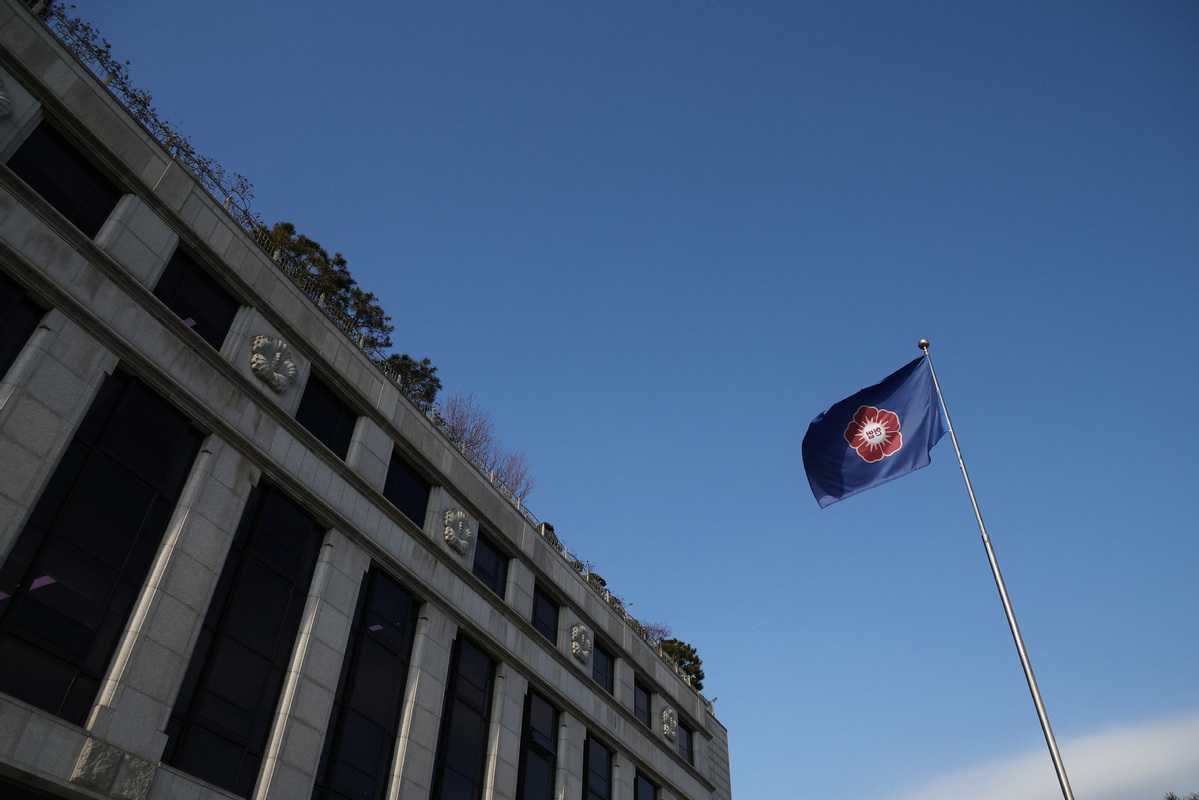
SEOUL - South Korea's constitutional court said Monday that it will prioritize the case on whether to uphold or reject an impeachment motion against President Yoon Suk-yeol that was passed by the National Assembly last Saturday.
The court's spokesperson said at a televised press conference that among others, Yoon's impeachment case will be prioritized, announcing a decision to hold the first preliminary hearing on the impeachment on Dec 27 after having its first meeting of justices earlier in the day.
During the preliminary hearing set to be made public, both the parliamentary plaintiff and Yoon's defense counsel will be called to review issues and evidence while deciding on hearing dates for deliberation.
The court planned to secure investigation records from the prosecution and police early during the preliminary hearing, forming a task force with about 10 constitutional researchers to speed up the review of facts and legal issues.
The second motion to impeach Yoon was passed by the National Assembly last Saturday and was delivered to the constitutional court to deliberate it for up to 180 days, during which Yoon's presidential power will be suspended.
Yoon was named by investigative agencies as a suspect on rebellion charge following his martial law imposition on the night of Dec 3 that was revoked by the National Assembly hours later.
At least two-thirds of the nine-member constitutional court should rule in favor of the impeachment to remove Yoon from office.
Currently vacant are three justices, for whom the majority opposition Democratic Party and the ruling People Power Party recommended two and one justices respectively.
If the court upholds the impeachment, a snap presidential election will be held within 60 days, but otherwise, Yoon will immediately be reinstated.
